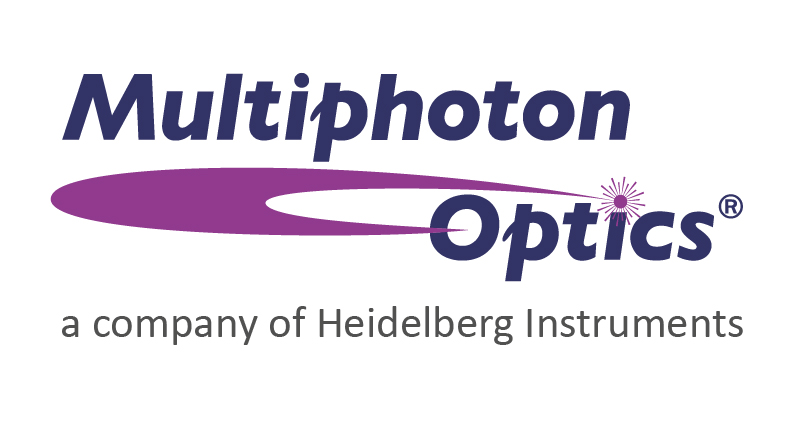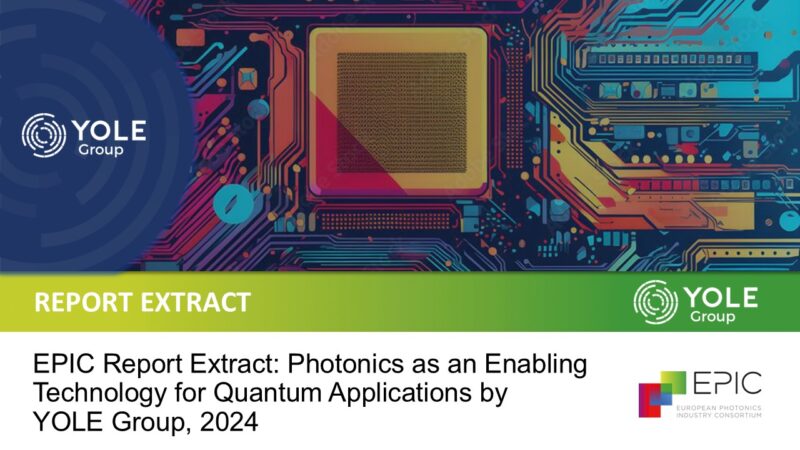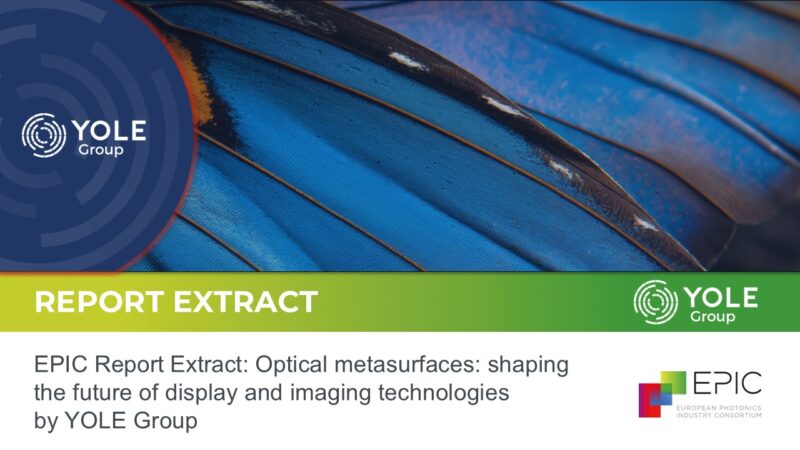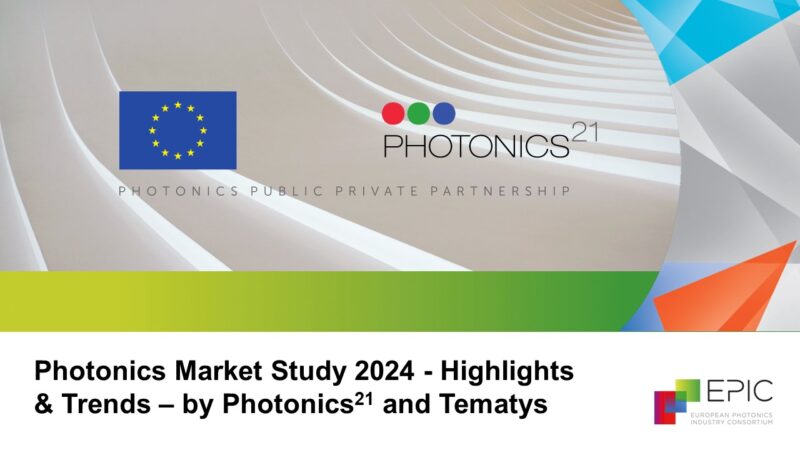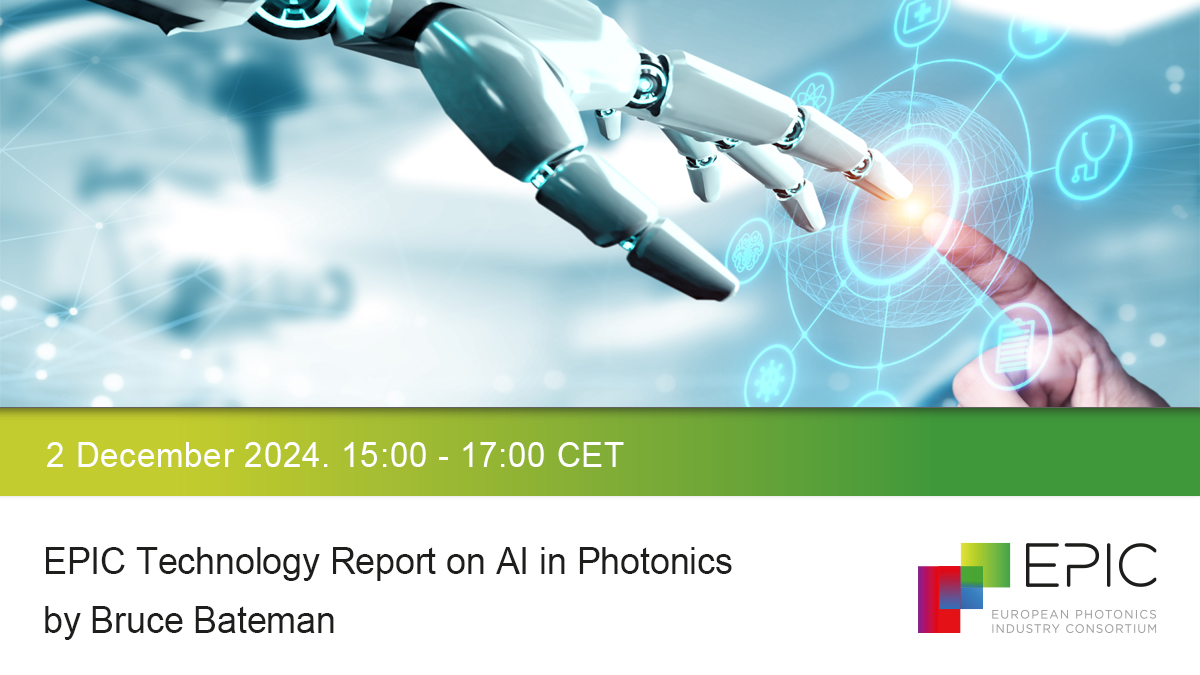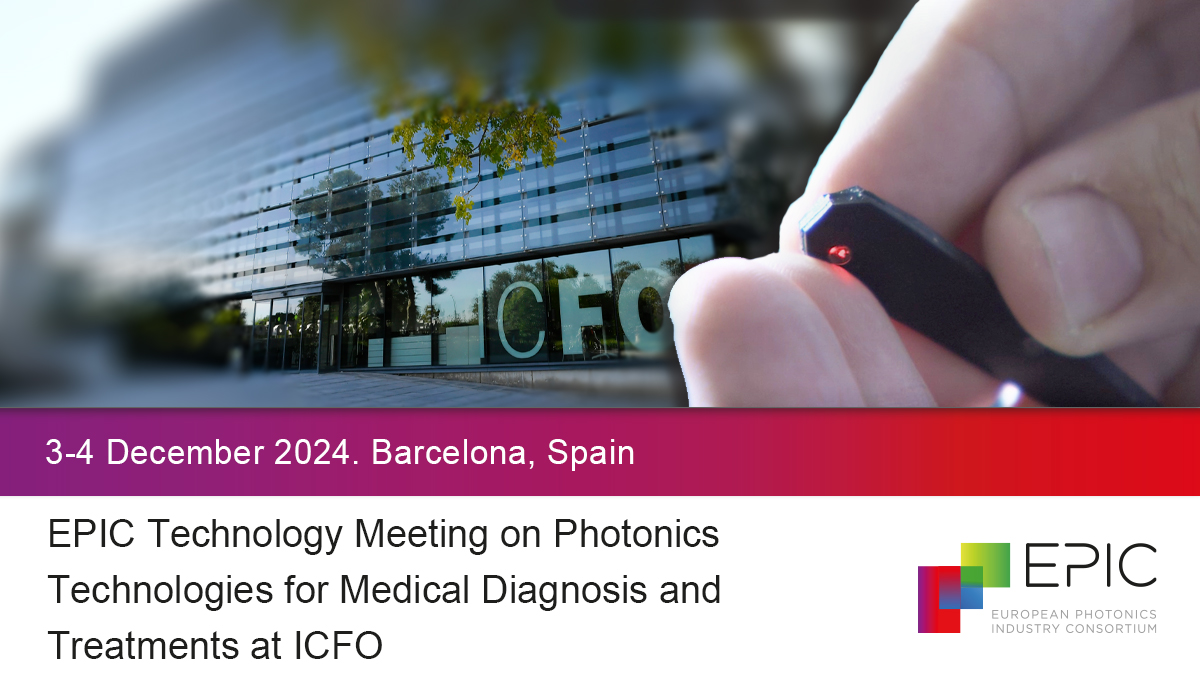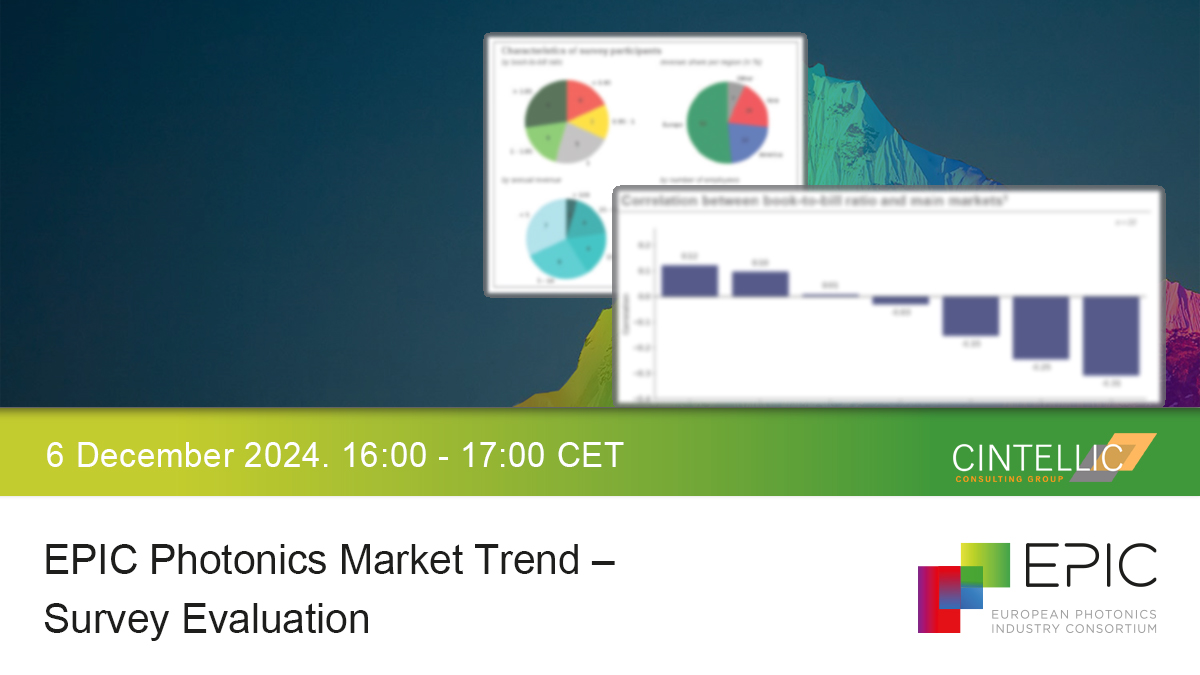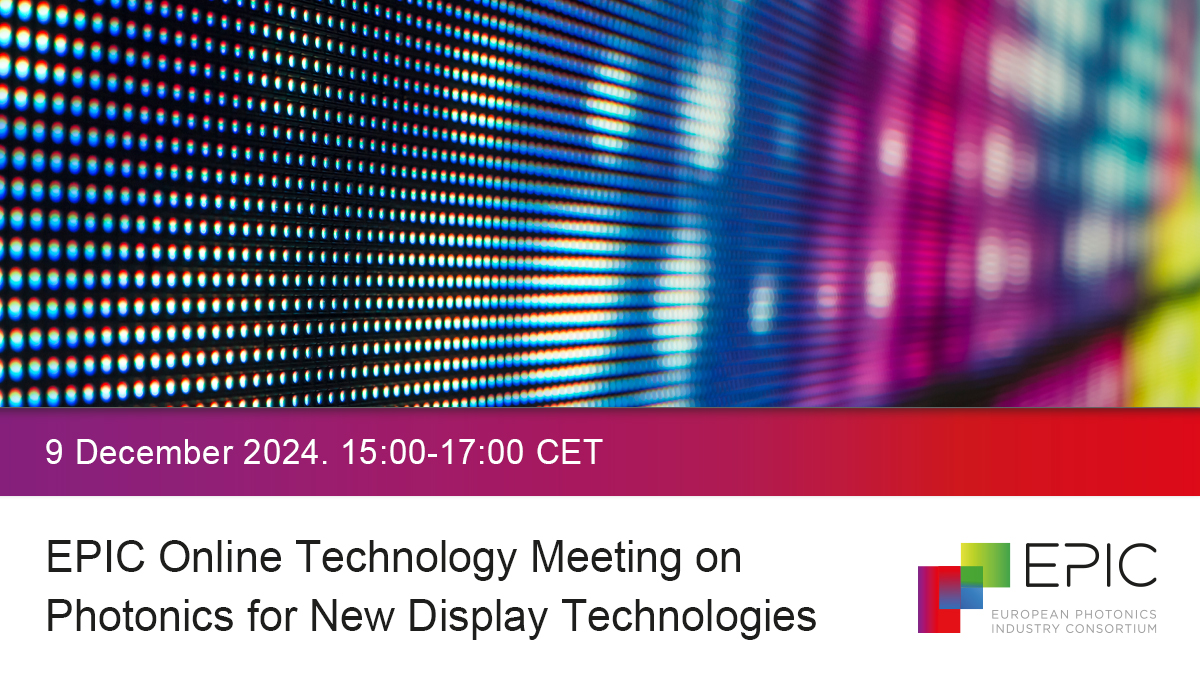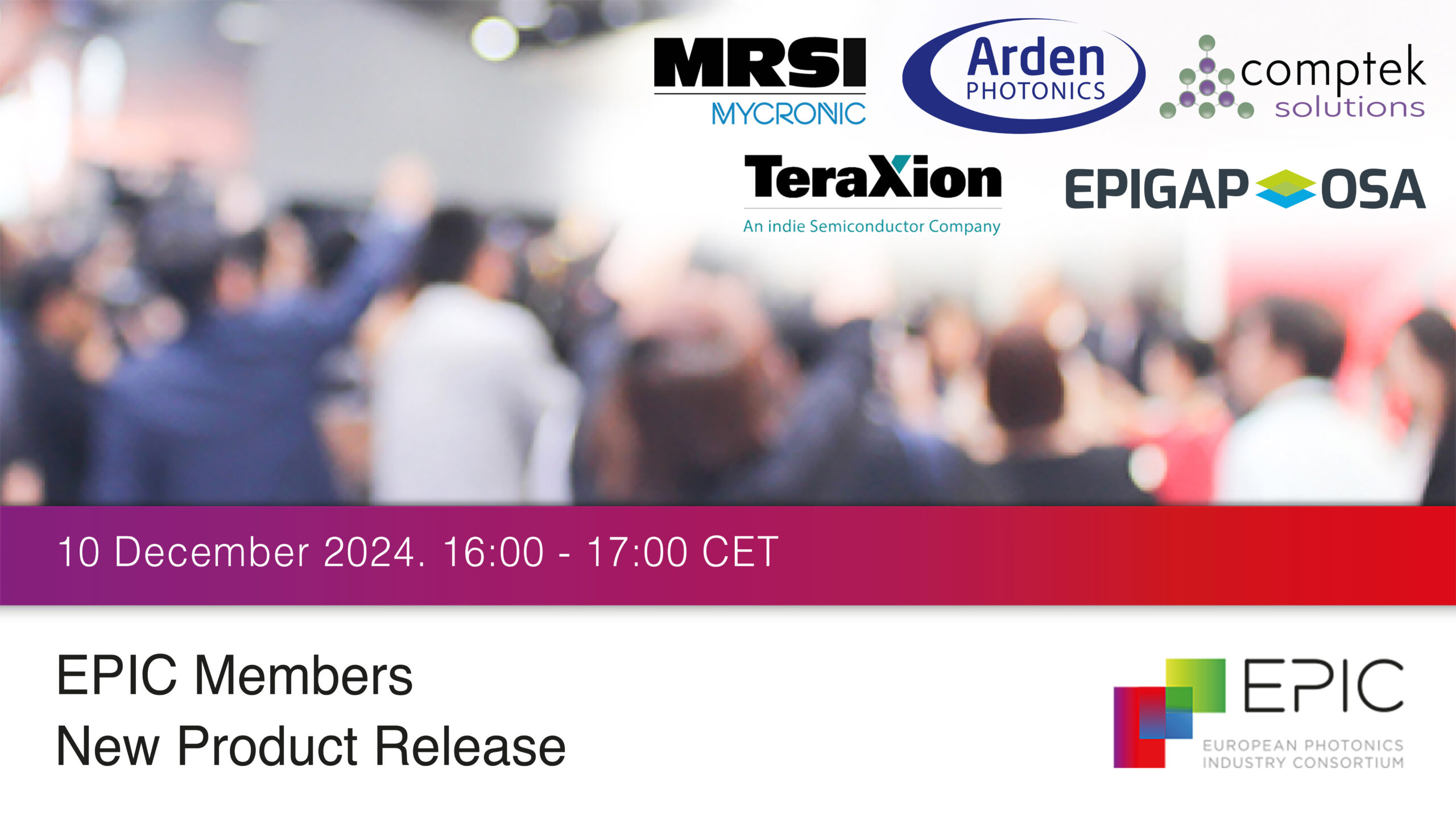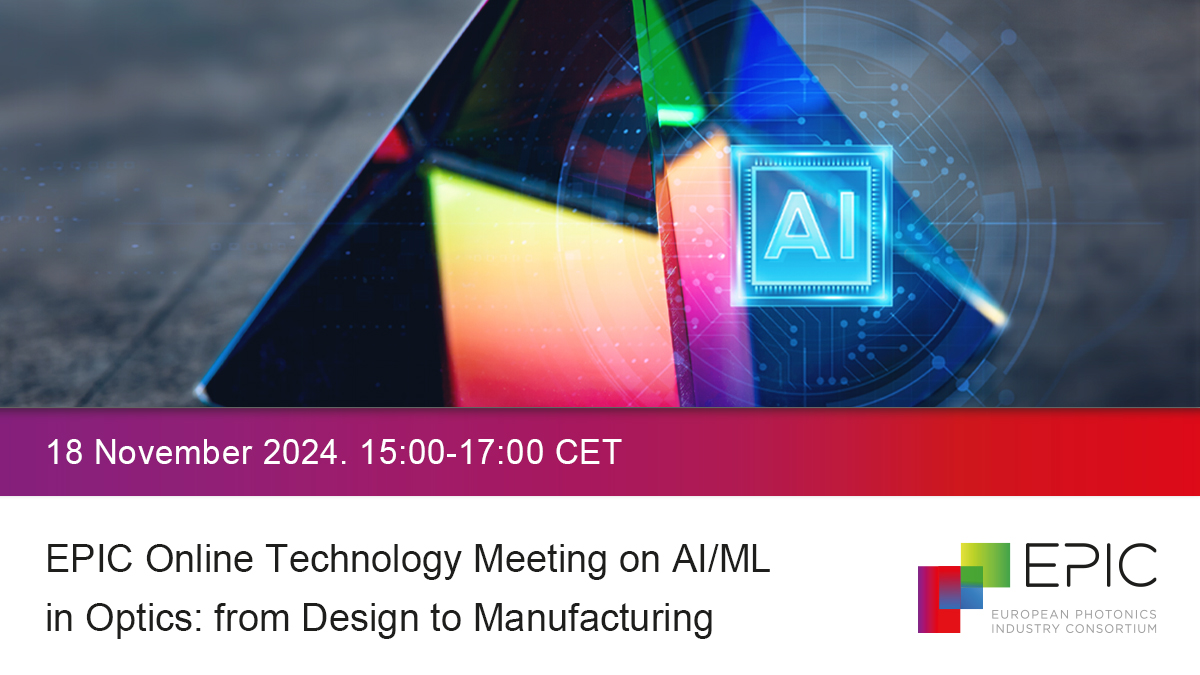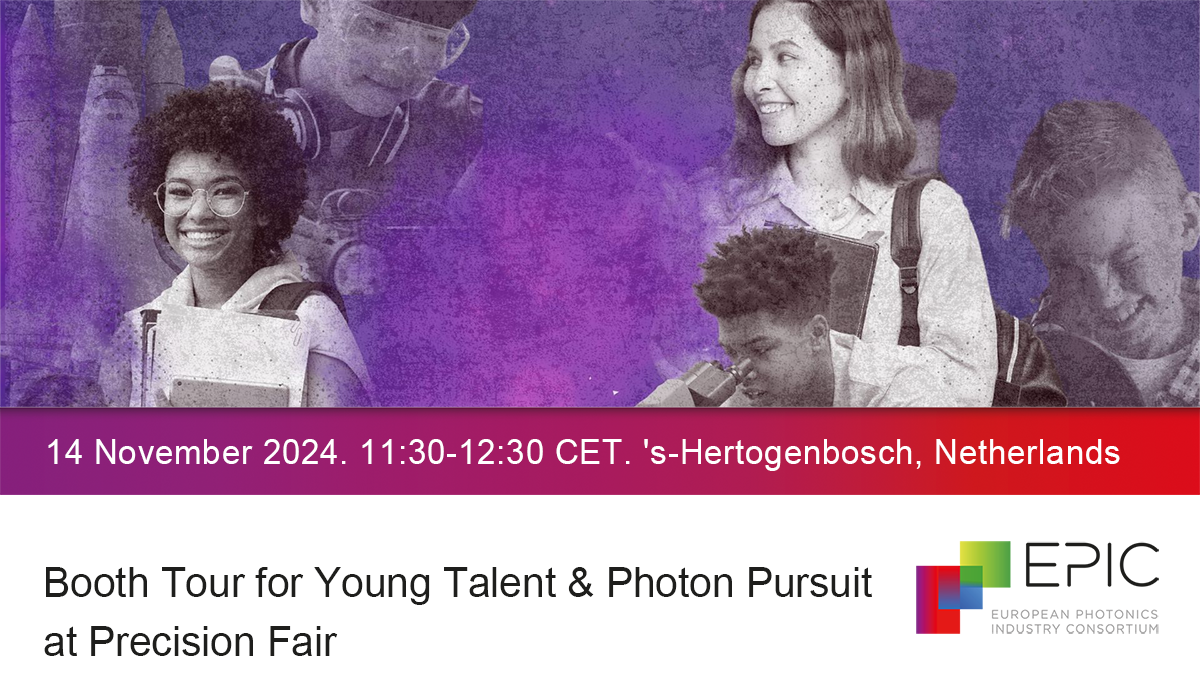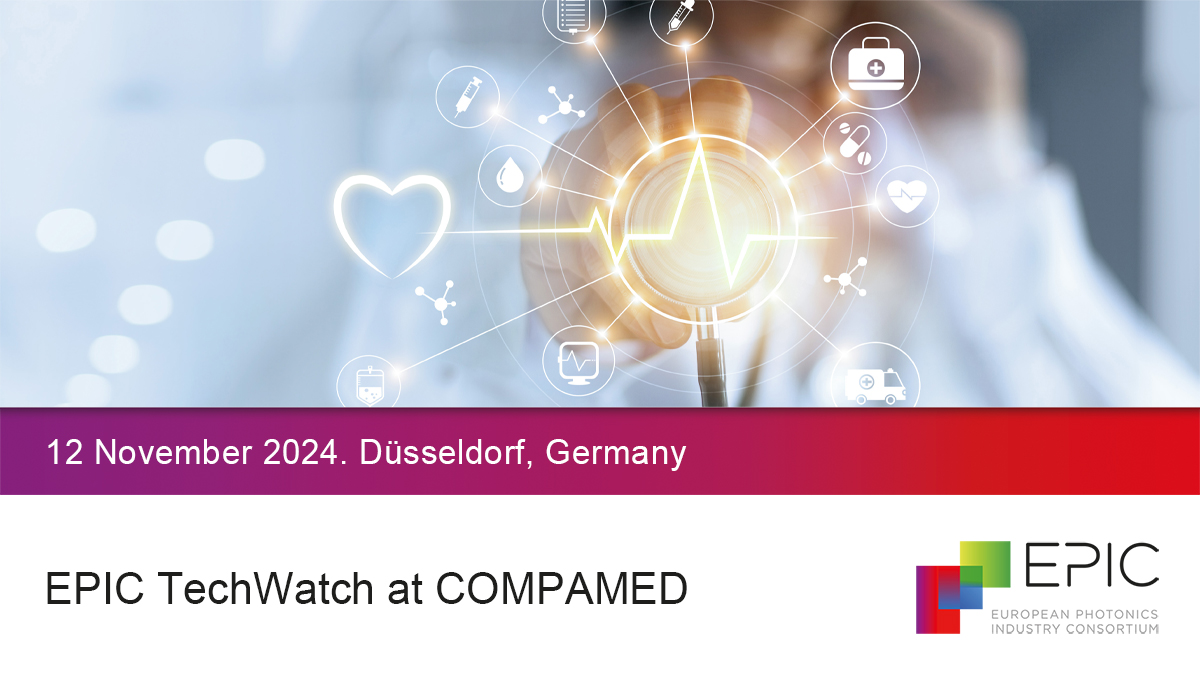EPIC is exploring additional ways to give more visibility to our members especially when conferences and exhibitions are being canceled/postponed. We are inviting you to a live virtual company tour at Heidelberg Instruments and Multiphoton Optics guiding you through the facilities and to a sneak peek of their technologies. During this tour we are going to stream from 3 sites: Heidelberg Instruments (Heidelberg Germany), Multiphoton Optics (Würzburg, Germany) and Heidelberg Instruments Nano (Zurich, Switzerland).
With EPIC’s virtual company tour, Heidelberg Instruments is inviting the photonics community to its European locations in Germany and in Switzerland. At the company’s new headquarter in Heidelberg, the audience will get insights into maskless lithography systems going through production and assembly facilities, before making a stop at the Process and Application Lab (PAL) where the performances of the direct write systems are demonstrated. An overview of grayscale lithography, from design to micro-structured photoresist will be presented. In Zürich, Heidelberg Instruments Nano will introduce Thermal Scanning Probe Lithography (t-SPL), a technology enabling novel nanofabrication methods. The patterning process of the NanoFrazor systems will be revealed. Back to Germany, in Würzburg, Multiphoton Optics, the youngest Heidelberg Instruments family member will introduce its recently launched multi-user tool, the MPO 100, combining both 3D laser lithography and 3D microprinting in one device with unique key features in two-photon polymerization (TPP) technology.
Heidelberg Instruments designs, develops, and manufactures maskless laser lithography and direct write systems for the micro and nanofabrication, serving the global photolithography community in both the direct writing field and in photomask production. Main areas of application include MEMS, micro-optics, advanced packaging (3DIC), IC, flat panel displays (FPD), micro-fluidics, sensors, and other analog and digital electronic components. The Heidelberg Instruments systems are used in research and development, for rapid prototyping, and in the industry environment.
- Achim Weber , Senior Development Engineer at ficonTEC
- Alain Villeneuve , President at Consultants Optav
- Alexander Neustadt , Lead Lighting Engineer at Nolden Cars&Concepts
- Alexey Ilin , Senior Researcher at Kotelnikov IRE RAS
- Alfred Jacobsen , Managing Director at Visitech Engineering
- Alwin Daus , Senior Researcher at RWTH Aachen University
- Andre Nauen , R&D at Huawei
- Andrea Lovera , Chief Technical Officer at FEMTOprint
- Arne Schleunitz , CTO at micro resist technology
- Charles Goëller , COO at ICON Photonics
- Christian Neumeyr , CEO at Vertilas
- Davis Zhang, Engineer at Heidelberg Instruments
- Edgar Fernandes , Application & Sales Engineer at Menhir Photonics
- Giorgio Cellere , New Business Development Director at Applied Materials
- Hans Joachim Stöhr , Sales Manager at Novel Optics
- Holger Quast , Vice President Biophotonics and Materials at TOPTICA
- Hossein Movla , Researcher at University of Tabriz
- Jack Yuan , Senior Manager, Techncial Marketing at Molex
- James Schildknecht , Head of Sales at Nanoscribe
- Jan Hendrik Peters , Owner at bmbg consult
- John Tamelier , Process Engineer at University of California
- Justine Murphy , Senior Editor at Laser Focus World
- Kathleen Stoehr , Marketing at Jenaer Antriebstechnik
- Konstantinas Zakalskis , Business Development Manager at Optoman
- Lars Penning , CEO at Next Scan Technology
- Laura Jenni , Process Development Engineer at Axetris
- Lei Yuan , Senior Research Scientist at Corning
- Marc Schnieper , Senior Scientist at Süss MicroOptics
- Martin Hermatschweiler , CEO at Nanoscribe
- Mathieu Séménou , Sales Manager at Femto Easy
- Matthias Peters , Sales Manager at TOPTICA
- Maurizio Gattiglio , CEO and Partner at ARCA Partners
- Michael Huber , Business Director Systems at FISBA
- Michael Hornung , Managing Director at AMO
- Nuno Edgar Nunes Fernandes , Engineer/Enterpreneur at Photonics Precision Technologies
- Oliver Pust , Senior Sales Development Manager at Ibsen Photonics
- Paul Hartmann , Director of Institute MATERIALS at JOANNEUM RESEARCH
- Pawel Wienclaw , CEO at SYGLASS
- Peter Harmsma , Program Manager at CITC
- Peter Lowy , Sales Manager at Sylex
- Pierpasquale Tortora , Project Manager at Asulab
- Pinhas Rosenfelder , Electro-optics Engineer at QuantLR
- Ralph Mende, Director SCM at Envisics
- Reiner Goetzen , CEO at microTEC
- Reinhard Voelkel , CEO at SUSS MicroOptics
- Roger Artigas , President & CTO at Sensofar
- Rolando Ferrini , Head of Photonics at FEMTOprint
- Ruth Houbertz , Managing Director & Owner at ThinkMade Engineering & Consulting
- Salah Oudjertli , Dr, Senior Research Scientist at Research Center In Industrial Technologies. CRTI
- Samik Pal , Manager at Labindia
- Sanjay Gangadhara , Director R&D at Ansys
- Scott Barrie , Business Development Manager at Sivers Photonics
- Sebastian Aske , Product Manager at Visitech
- Simon Kempf , Sales Engineer at Laser 2000
- Sven Preuss , Director Technical Sales at Heidelberg Instruments
- Thomas Niedereichholz , Senior Sales at Hamamatsu
- Tugce Demirsoy , Physics Engineer at Aselsan
- Umut Aydemir , Associate Professor at Uludag University
- Uwe Linss , Director of Sales at FOCUZ Manufacturing
- Valerie Lyttle , Marketing Executive at Yelo
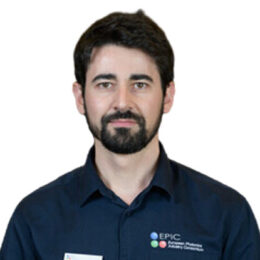

Market Reports
Upcoming Events


